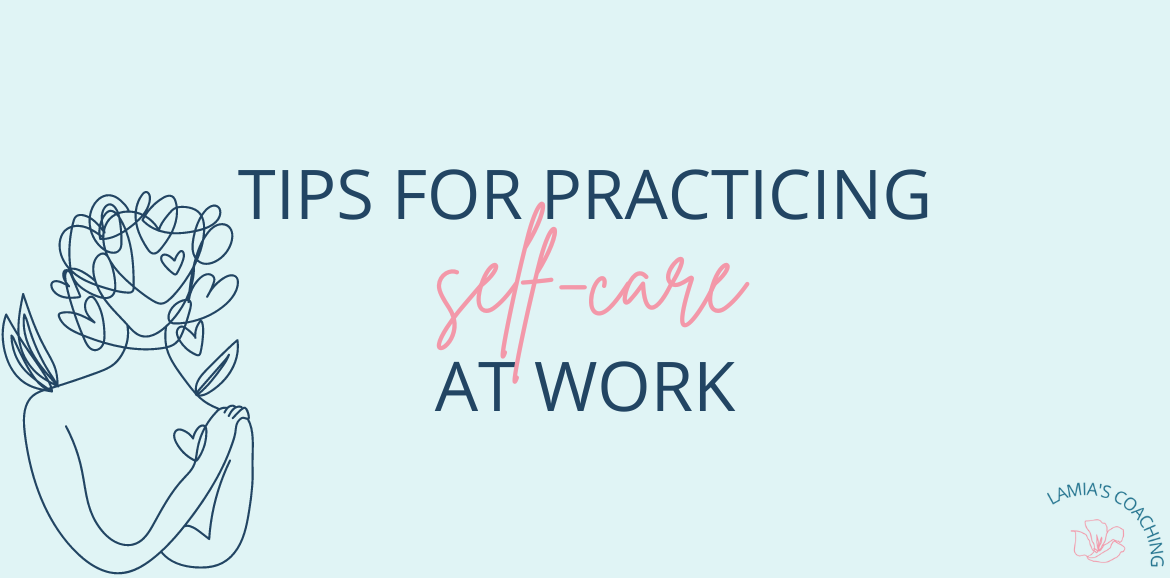You may frequently feel as if you have to use all of your effort as a high-achieving professional woman to keep up with demands and expectations at work. But disregarding your personal needs can result in stress, burnout, and negative effects on your general wellbeing. As an intuitive eating specialist and anti-diet coach, I think that taking care of oneself is crucial to developing a positive relationship with your body and yourself. Here are some tips for practicing self-care at work.
1. Take breaks regularly
Take regular breaks throughout the day to give your body and mind a rest. Get up from your desk and go for a short stroll, do some stretches, or work on your deep breathing. You’ll feel more energised and concentrated when you get back to work as a result.
2. Prioritize sleep
Make sure you’re getting enough sleep each night. Lack of sleep can impact your mood, focus, and productivity at work. Try to establish a consistent sleep schedule and create a calming bedtime routine to help you relax and unwind before bed.
3. Listen to your hunger cues
Making time for meals and snacks during the workday is also crucial. Eating on the run or skipping meals might result in thoughtless eating where no thought is given to the foods being consumed. In addition to promoting your physical health, taking a pause to eat a filling meal or snack can also increase productivity by providing you with a mental respite from your work.
4. Drink water
Your physical and mental health depend on being hydrated. Aim to consume eight glasses of water each day, and keep a bottle of water at your desk. This will keep you awake and energized while avoiding headaches or lethargy.
5. Connect with colleagues
Connecting with coworkers can significantly improve your mental health in addition to being a terrific way to forge lasting relationships. According to research, social support at work can lower stress and boost job satisfaction.
Building relationships with coworkers and finding out more about their interests and experiences can happen when you take the time to talk with them during breaks or go to work-related events. You might discover that you and your coworkers are more alike than you previously assumed.
It can also be a fantastic idea to arrange a lunch or coffee date with someone you enjoy spending time with in order to develop connections and support networks at work. In particular during trying times, talking to a trustworthy colleague about your ideas and feelings can provide you a sense of validation and support.
Making connections with your coworkers can also increase your motivation and sense of engagement at work. You are more likely to feel invested in your work and committed to reaching your goals when you have a sense of connection and belonging with your team.
In general, self-care at work involves making an effort to interact with coworkers. It can enhance your general wellbeing by lowering stress and fostering great interactions.
6. Practice self-compassion
Practicing self-compassion is an essential component of self-care, especially for high-achieving professional women who are often prone to perfectionism and self-criticism. It’s important to remember that we are all human, and making mistakes and having bad days at work is a normal part of life. Instead of getting caught up in negative self-talk and beating ourselves up over small setbacks or failures, it’s important to treat ourselves with kindness and compassion.
One way to practice self-compassion is to adopt a growth mindset. This means seeing mistakes and failures as opportunities for learning and growth rather than as a reflection of our worth or competence. Instead of getting down on ourselves when things don’t go as planned, we can use these experiences as opportunities to learn and improve.
Another way to practice self-compassion is to focus on our accomplishments and strengths. It’s easy to get caught up in our failures and shortcomings, but it’s important to also acknowledge our successes and the things we do well. Take time to celebrate your accomplishments, no matter how small they may seem. Recognize your strengths and use them to your advantage at work.
In addition to these strategies, practicing positive self-talk can also be helpful for cultivating self-compassion. Instead of criticizing yourself or engaging in negative self-talk, try speaking to yourself in a kind and supportive manner. For example, instead of saying “I can’t do this” or “I’m not good enough,” try saying “I’m doing my best” or “I have the skills and abilities to succeed.”
Ultimately, practicing self-compassion is about treating ourselves with the same kindness and compassion that we would offer to a friend or loved one. By adopting a growth mindset, focusing on our accomplishments and strengths, and practicing positive self-talk, we can cultivate a sense of self-compassion that can help us thrive both personally and professionally.
7. Set boundaries
Setting boundaries is an essential aspect of practicing self-care at work. It can be tempting to prioritize work over personal time, but neglecting your own needs can lead to burnout and exhaustion. Learning to say “no” to requests or projects that don’t align with your priorities or workload is important.
One way to establish clear boundaries is to communicate your needs with your colleagues and superiors. Let them know your availability, work hours, and preferred methods of communication. This will help ensure that your work responsibilities don’t interfere with your personal life and that you have time to recharge and rest.
Another helpful tip is to prioritize your most important tasks and projects first. Create a to-do list and assign deadlines, then focus on completing the most critical items before moving on to less urgent tasks. This will help you manage your workload and avoid feeling overwhelmed.
Remember that it’s okay to take breaks and step away from work, even if it’s just for a few minutes. Take a walk outside, practice deep breathing, or listen to calming music to help reduce stress and boost your mood. Setting boundaries and prioritizing your own needs may feel uncomfortable at first, but it’s crucial for your well-being and overall success in the workplace.
Conclusion
Keep in mind that taking care of yourself at work is not being selfish. Taking care of your physical and mental health will ultimately improve your quality of life and work performance. You might feel more energised, focused, and inspired to accomplish your professional goals by giving self-care top priority.
Ready to take your journey to the next level? I am offering a 1:1 coaching program The Nourished professional! It’s designed specifically for busy professionals who want to find food freedom and beyond.
And you can also claim your free consultation session to discuss your unique needs and goals.


